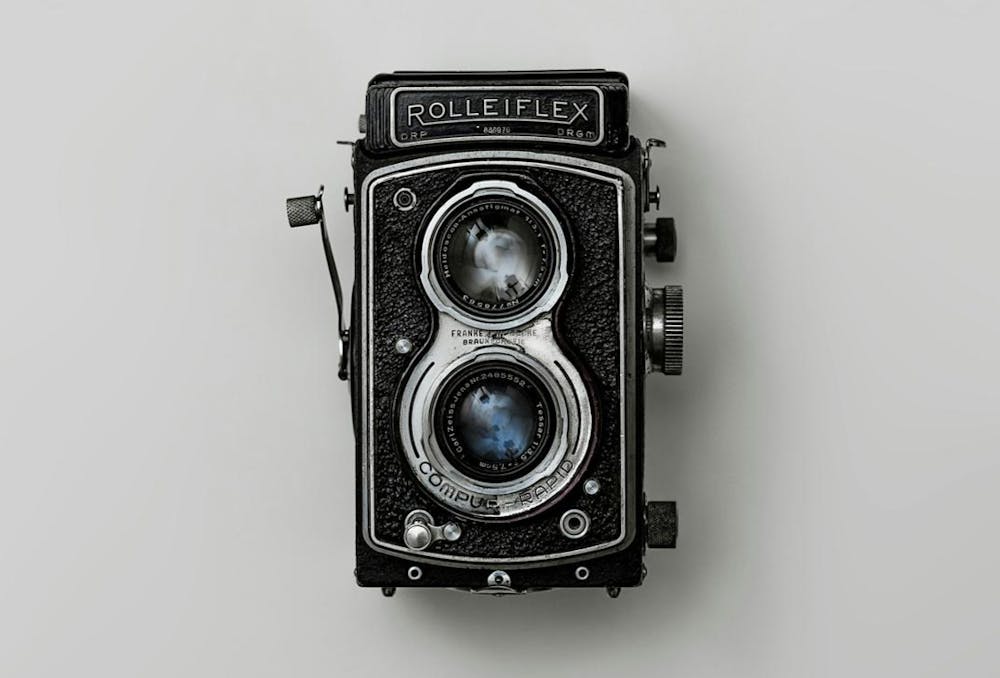I’m in Bitondo’s, eating a slice of pizza and watching the Olympics on a cable TV nestled in the corner of the shop. The staff is very Italian — stained wife-beaters, emphatic gesticulating, improbably thick accents given how long ago they emigrated, the whole nine yards — and they’re doing that thing Ellis Island whites love to do: rooting for the athletes from “the motherland” whenever there are no Americans to cheer for. An Italian swimmer wins his heat, and they’re ecstatic.
As I’m watching the coverage (sponsored by Ozempic, by the way), I’m struck by the fact that I’ve seen these images before. The underwater camera, the tracking shot, the bird’s-eye view, the triumphant close-up. We see them every four years, of course, but I’m thinking of the time I sat down with a bag of microwavable popcorn and watched “Olympia” — Leni Riefenstahl’s documentary film of the 1936 Berlin Olympics.
The way athletics are shot really hasn’t changed since Riefenstahl basically authored the sports photography playbook in “Olympia.” The underwater camera, the tracking shot, the bird’s-eye view, the triumphant close-up. It all starts there, and in exceedingly tasteful black-and-white too. She even manages to make track and field (i.e. running in circles, running in lines, jumping one way, jumping another way, throwing a long thing, throwing a small thing, over and over and over again, on and on and on) not only visually stunning but narratively compelling as well. It’s a masterpiece, a coup, a “gesamtkunstwerk”!
Leni Riefenstahl is — rightfully — recognized as a cinematographic pioneer, but most people only recognize her name (if they recognize it at all) in connection to “Triumph of the Will,” her documentary film of the 1934 Nuremberg rally which is acknowledged as the pinnacle of propaganda filmmaking. Riefenstahl, of course, denied that she intended it as a piece of propaganda at all, instead insisting that she had been pressured by Hitler and Goebbels to cover the event and that she had merely shot it as she would any other assignment — meticulously and alluringly, that is.
Still, “ye shall know them by their fruits.” Whether Riefenstahl was an ideological actor or not (as she insisted), it doesn’t change the fact that “Triumph of the Will” is an ode to Nazism — a wonderful and horrible one. Its choreography is splendid, and its cinematography is revelatory, so much so that it is capable of transforming the coughing, fidgeting Hitler of reality into the ubermensch he claimed to be. Craft-wise, it is a great achievement; morally-speaking, it is a great sin.
It is a specious maneuver, however, to argue that the existence of “Triumph of the Will” must preclude any enjoyment of “Olympia.” While it’s impossible not to confront the stench of Nazism when watching “Triumph of the Will” (it is a film about Nazism, after all), it’s unfair to read fascism into “Olympia.”
We should try to understand “Olympia” as its audience understood it, and its audience did not understand it as Nazi propaganda. “Olympia” was received warmly across Europe — even in Germany’s soon-to-be enemy, France — in a way it never would have been had it really been a piece of Nazi propaganda. Its release in America, however, was interrupted by news of the Kristallnacht. Still, the ensuing censure of “Olympia” was a response to this historical circumstance and not to the content of the film, which was quietly released here in the 1940s.
Because of these facts of its reception, the only way to damn “Olympia” left to its detractors is to truffle hog through the film itself. This is the sort of tack they take: ”Unlike ‘Triumph of the Will,’ which is explicitly fascist, ‘Olympia’ is implicitly fascist.” Hidden under the veil of sportsmanship and apoliticism, they claim, lies a rightist message inherent in Riefenstahl’s glorification of athletic bodies and valorization of human beauty on film.
Artistically, this argument is dishonest. It attempts to connect Riefenstahl’s desire to create attractive pictures — and what director doesn’t have this desire? — to Hitler’s eugenicist “master race” project. The problem is that there’s no trace of it in “Olympia.” Riefenstahl’s camera flatters bodies from Europe, Asia, South America and Africa alike. “Olympia” obviously celebrates the German victories, but it also depicts their defeats — like at the hands of Jesse Owens (America’s black track star) and the “boys in the boat” (America’s rag-tag rowing team).
Moreover, this argument is a political blunder. Is it wise to write off human beauty as fascist? Only an idiot would cede the use of as powerful a weapon as beauty to his enemy.
All in all, I like “Olympia.” I also acknowledge that “Olympia” includes a brief Hitler speech and that there are swastikas in the backgrounds of some of the shots, because of course there are. Those were features of Berlin in 1936, and it is a documentary after all. They’re there in the artless American newsreel footage too, and they would’ve been there even if Riefenstahl hadn’t made the picture.
See, the point of “Olympia” is neither Hitler nor swastikas. If the Nazi flags are the only thing in “Olympia” that capture your attention, and not — for example — the divers soaring through the sky in beautiful slow motion and psychedelic smash cuts, you’re probably warped and frustrated. The point of “Olympia” is the same thing that glued me to the crummy TV in that greasy pizza shop as I watched the Olympics this summer: the literally awesome feeling of witnessing incredible human accomplishment and the art of capturing it on screen.










